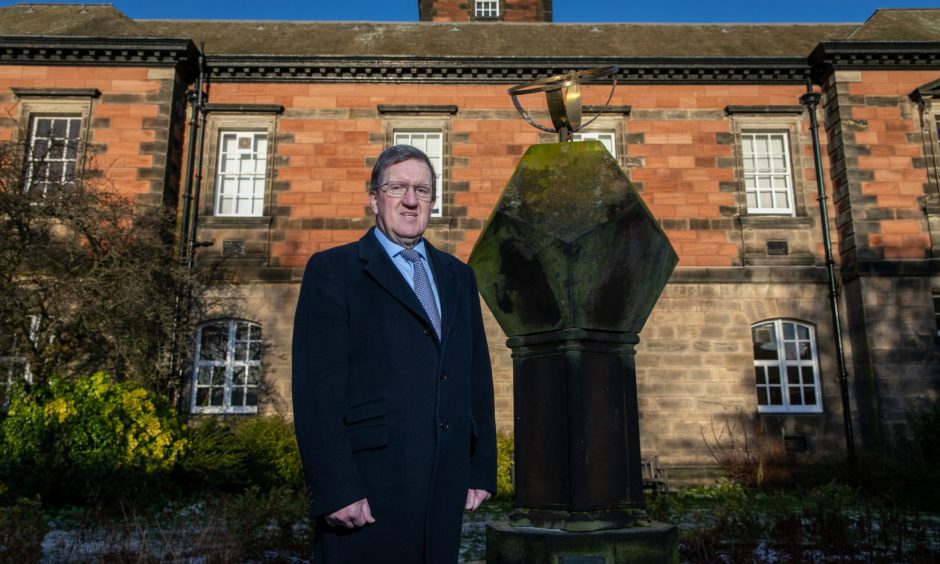
Sitting round the table were Vladimir Putin, George W Bush, Jacques Chirac and Tony Blair.
“What am I doing here?” joked Lord George Robertson, as he reflected on his rise from Dundee’s student council to chairing meetings of world leaders.
Lord Robertson of Port Ellen was secretary general of NATO during that NATO-Russia gathering in Rome in 2002.
Just over 30 years earlier, he was finding his political feet in Dundee as a “truculent, noisy” student, leading protests, sounding off about ‘right-wing’ St Andrew’s University and even castigating a warden who threw him out of the girls’ halls of residence.
Made Chancellor of Dundee University in November 55 years after he graduated with a masters degree with honours in economics, Lord Robertson told The Courier about his student days, “cordial” meetings with Putin and the proudest moments of his political career.
Dundee student life
At the age of 22, George Robertson was among the first students to graduate from Dundee University when it broke away from St Andrews University.
Given the choice, the anti-establishment livewire opted for a Dundee rather than St Andrews degree and urged others to do the same to give the fledgling university “a start in life”.
But he admits: “I didn’t win because the majority still took the St Andrew degree when they had the choice.”
Another of his causes didn’t quite have the impact he expected – but went down in Dundee University history.
As Student Representative Council vice-president, he led an occupation of the university library protesting against student grant cuts and, as he recalls, their “great rebellion” turned into something “quite bizarre”.
“About 3am Principal Drever came in to see what damage was being done to his library but by this time people had got fed up.
“The speeches were over and people were tired and they thought ‘we’re in a library’ so some of them were sitting there working!
“We thought the principal was going to be enraged and he said, ‘Mr Robertson, maybe you could do this every Wednesday’!”
Having quickly flourished from a “very shy, very self-conscious” boy from Islay then Dunoon to a “highly-opinionated, self-confident” student, Lord Robertson became a regular and influential columnist in the student newspaper, Annasach.
Some of his topics were worthy issues such as student rent but he admits: “Some of the stuff was really irresponsible.”
Most notably a rant against a warden of West Park Hall who ejected him from the female quarters.
But he chuckles as he recalls a diatribe on St Andrews University.
He wrote: “I want to apologise for my column last week because I called St Andrews University a 16th Century slum. I should have said 15th Century.”
Besides politics both in and outside university – he had joined Dundee’s Labour Party by then – Lord Robertson found time to indulge in other student pursuits.
If he wasn’t at one of Principal Matheson’s sherry parties for the student council, he might be with friends in the Old Tavern, in Hawkhill, or the Breadalbane Arms.
He said: “We had a fairly active social life. Luckily there was no social media in those days, there are no photographs!”
His time in Dundee was, he says, a formative period for him.
A decade later, in 1978, Lord Robertson was elected to the House of Commons.
In the intervening 46 years he has been a key player on the international stage, both as the UK’s secretary of state for defence and as secretary general of NATO.
Pride in Kosovo liberation
One of his proudest achievements is his involvement in the liberation of Kosovo.
By the time the Balkans conflict reached a climax in 1999 over 250,000 Albanians had been driven out of their homes.
In his role as defence secretary, Lord Robertson pushed with other European ministers for NATO’s intervention.
Air strikes were launched in March 1999 and Serbian troops withdrew from Kosovo in June.
In 2008 Kosovo declared itself an independent country.
Lord Robertson returned to Kosovo last year as it marked the 15th anniversary of its independence and was given a warm welcome.
He said: “I was being hugged by old men, kissed by old men who remembered.
“It saved thousands of lives what we did. It was tough and it was difficult and it was high risk but that country was liberated.
“If we hadn’t done that these people would be refugees today, scattered across the world.”
Another proud moment in Lord Robertson’s life was the creation of the Scottish Parliament in 1999.
He was Labour’s shadow secretary of state for Scotland when the blueprint for a devolved parliament was being drawn up.
“After that everything else was easy, however tough!” he said.
“They drew it up and it had to be sold to the National Party…I’m quite proud of that now.”
And less than 24 hours after the September 11 terrorist attacks it was Lord Robertson who told the world that NATO’s Article 5 had been invoked – an attack on one country was an attack on all allies.
He said: “I read that out to a crowded press conference on the 12th of September.
“It was only half way down you suddenly realised this is history.”
Meetings with Putin
But Russia’s invasion of Ukraine bring feelings of bitterness for him, as he recalls standing next to Vladimir Putin as he spoke of Ukraine as an independent country.
Lord Robertson met the Russian president nine times during his NATO leadership.
He said: “I feel very personally aggrieved that the man I did business with is now so aggressive and so dangerous.
“I stood beside him that day in Rome, when he said, and I have the transcript, Ukraine is a sovereign, independent nation state and it will make its own decisions about security.
“Now he says it doesn’t exist, it doesn’t deserve to exist and he is going to basically eliminate it.
“I feel desperately sorry for the Ukrainians and determined they get the help and support required.”
Lord Robertson has spoken before of how Putin wanted to be part of Europe and NATO.
“He said ‘I want Russia to be part of Western Europe, that’s our destiny.'”
That NATO-Russia Council meeting he chaired in Rome in 2002 was so cordial that Putin cracked a joke, leaving even President George W Bush laughing.
After Putin and 19 other world leaders, including French president Jacques Chirac, prime minister Tony Blair and German chancellor Gerhard Schroder, had signed the council’s agreement Putin raised his hand to speak again, addressing Lord Robertson.
Lord Robertson said: “He said, ‘I just wanted to say this. You have told us you are the chairman of the North Atlantic Council and you are the chairman of the Euro Atlantic Partnership Council and now you are chairman of the NATO-Russia Council.
“‘Can I suggest that NATO headquarters should now be renamed the House of Councils?’ The Russian word for councils is soviets, so the interpreter told everyone ‘I suggest you call NATO headquarters the House of Soviets!’
“He had intended that as a joke,” he said, “but he’s not joking now.”
WATCH: Putin joke at NATO meeting
(Watch from 2.06 minutes – click here to read the English translation)
What went wrong?
“I think he just got delusions of grandeur; he wanted the same attention and respect the Soviet Union had.
“The Soviet Union was the second superpower in the world, whereas Russia was not and had an economy the size of Portugal’s.
“He [Putin] has very thin skin. People imagine these great world leaders can take it all, all the attacks, but they can’t, they’re just human beings.
“When President Obama, in a speech that was widely quoted, said Russia is just another regional power, that cut through.
“There might have been a chance at the beginning to have embraced him and brought him in but we lost that opportunity and he lost that opportunity.”
Lord Robertson today
While others his age – 77 – may take their foot off the gas to enjoy retirement, Lord Robertson remains as busy as ever, travelling weekly between the Dunblane home he shares with wife Sandra and London.
As well as private consultancy work, he is on the House of Lords international relations and defence committee which is currently looking at UK interests in the Western Balkans and the Arctic.
When he does have time for himself, it’s spent with family – he has two sons and a daughter and five grandchildren – playing golf or on photography.
Of golf he says: “I don’t play it very well, in fact I play it very badly but I enjoy it.”
Photography he has more of a talent for, having published two books of his work.
“It’s an escape and it’s nice to do something that’s a bit more permanent than the last speech you made.”
And he relishes his latest role as chancellor of his alma mater.
“From being a small offshoot of St Andrews, it’s now a really superbly performing university and one of the best in the country.
“I feel privileged to be back at time when the university is doing so well.
“I’m part of the establishment now. In those days I was very anti-establishment.
“I’ve got two knighthoods, a peerage, 14 honorary doctorates, medals from every country conceivable – I can’t claim to be anti-establishment any more!
“The main thing is to use what ever contacts or influence I might have to the benefit of the university and that’s what I look forward to doing.”
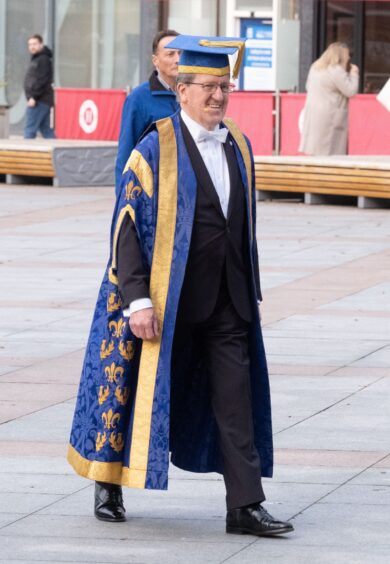
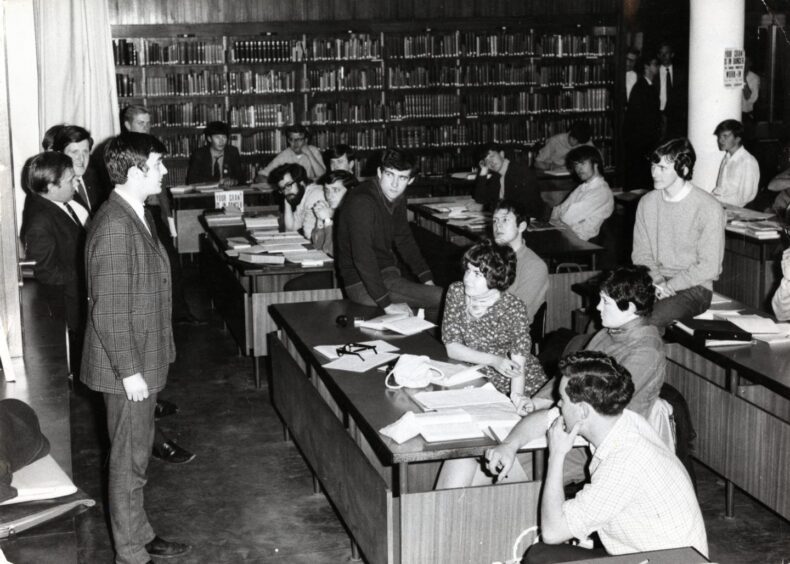
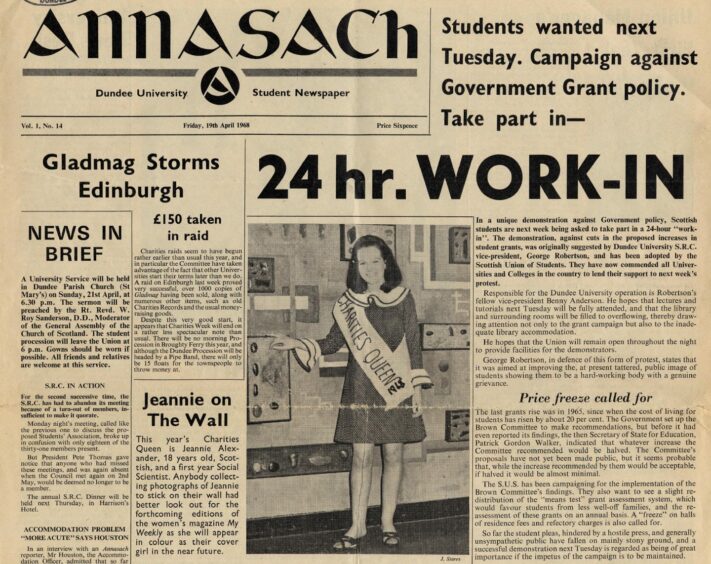
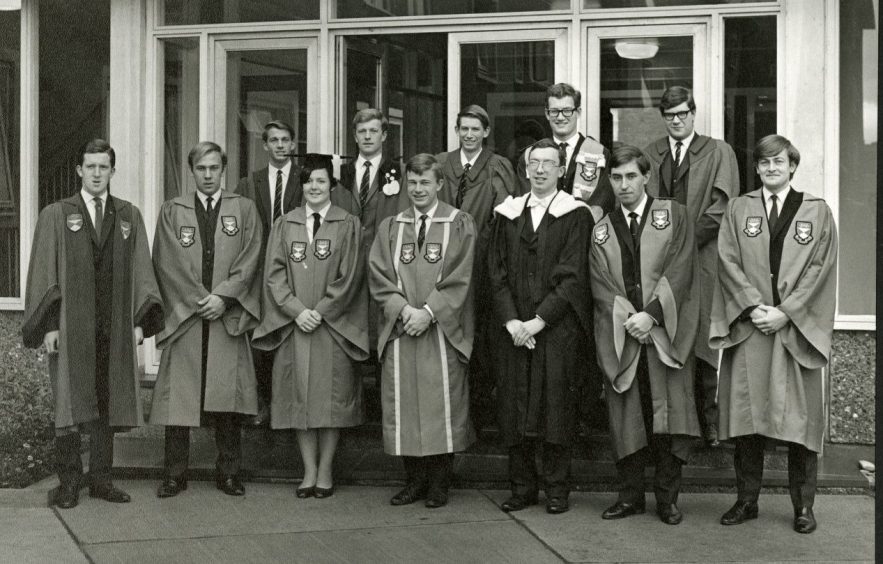
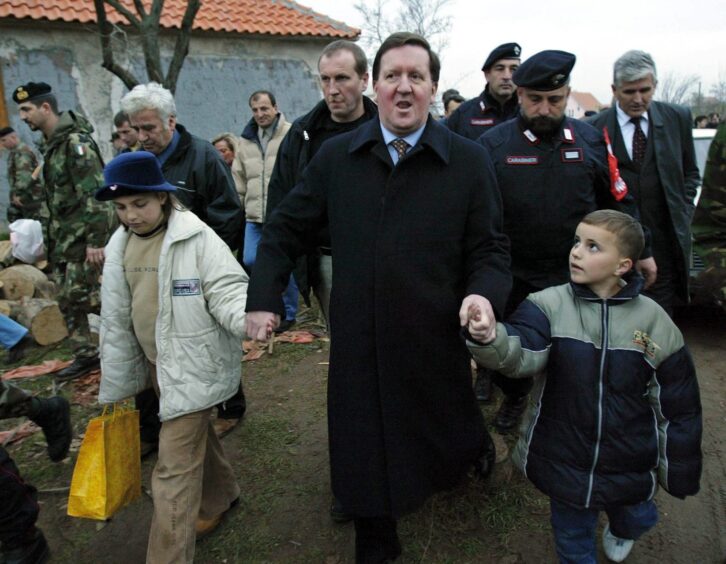
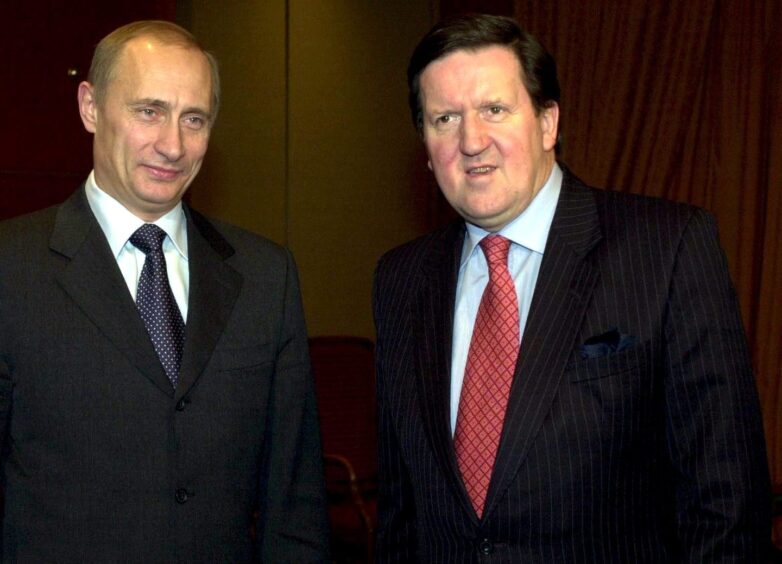
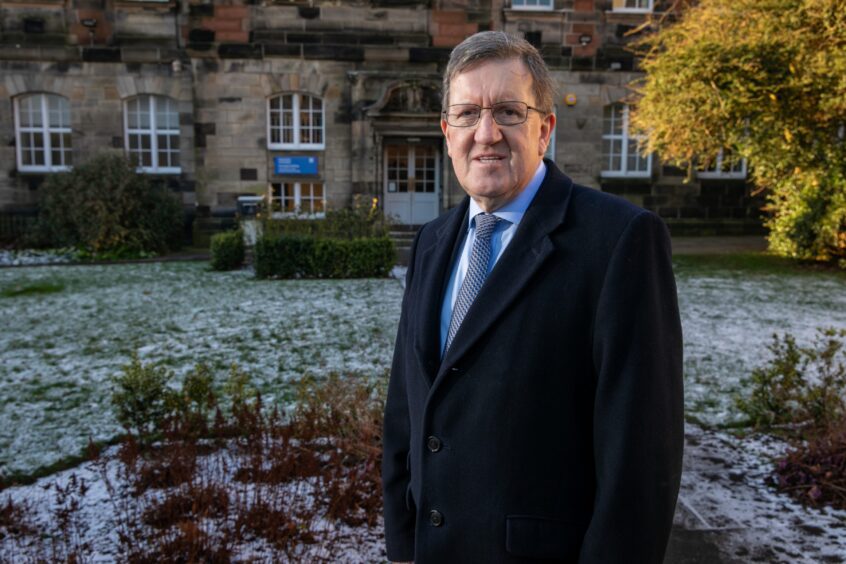










Conversation